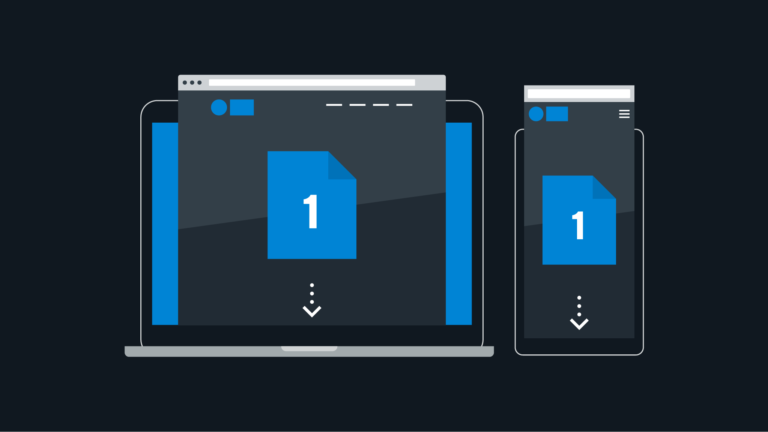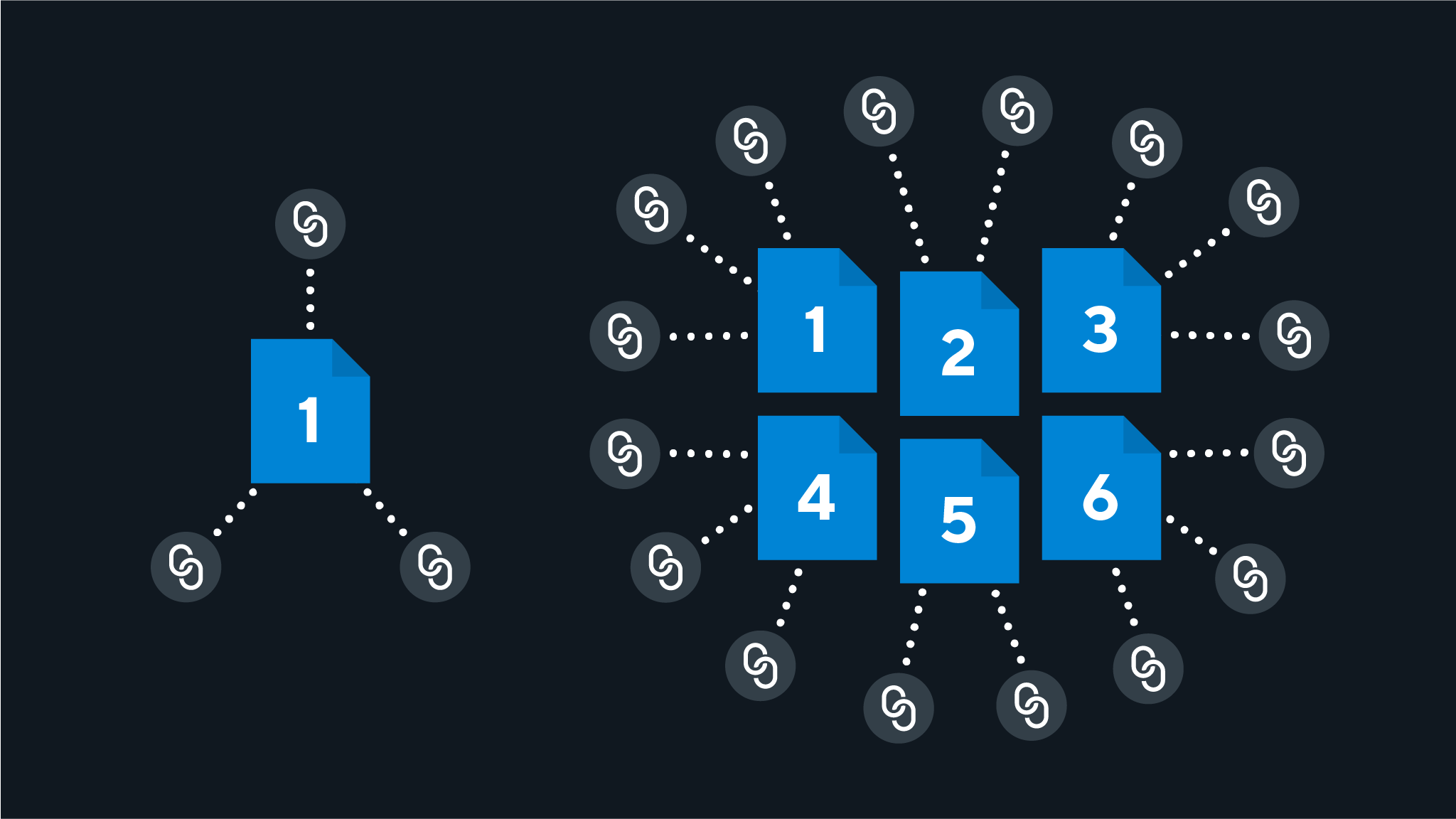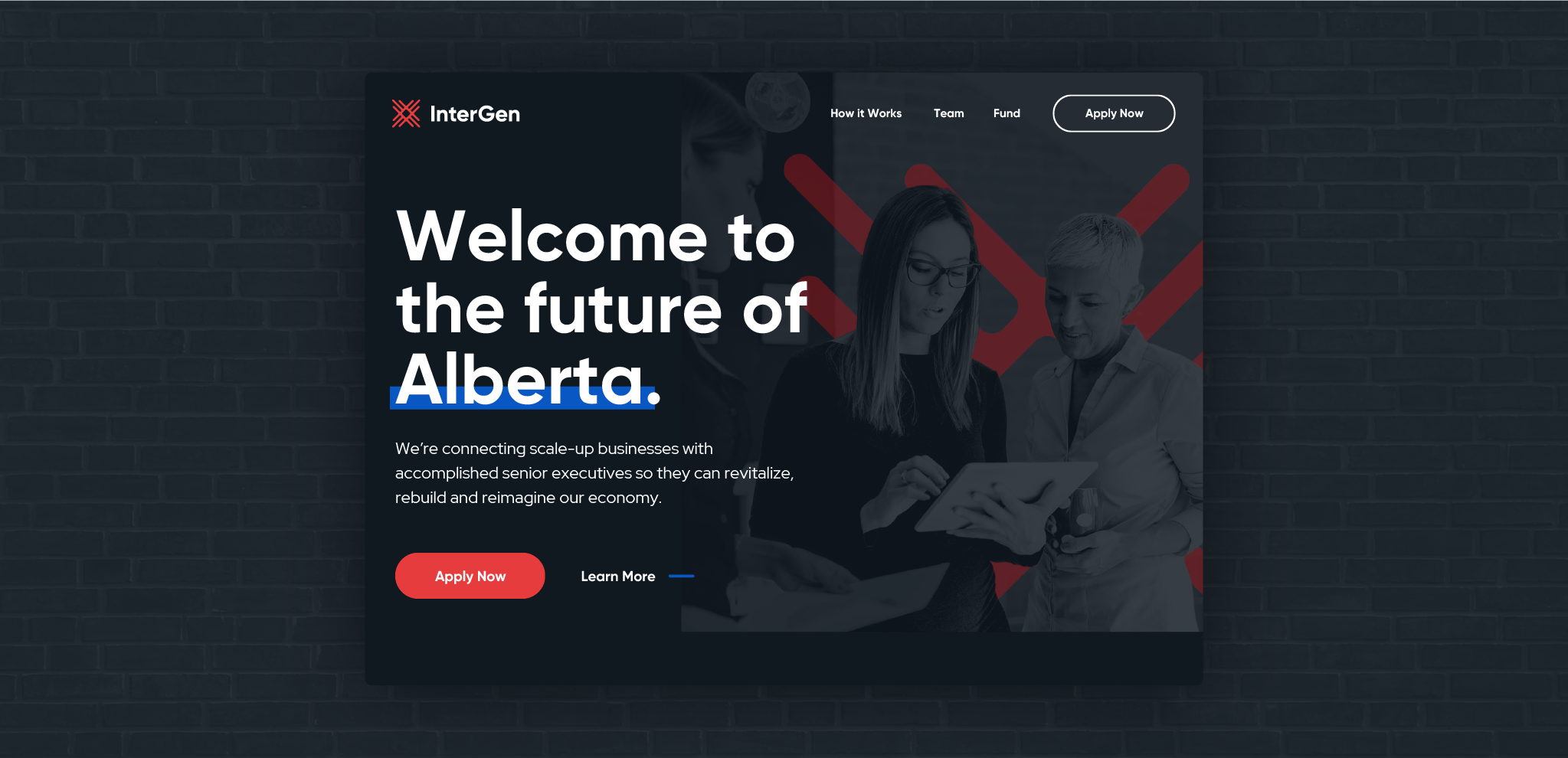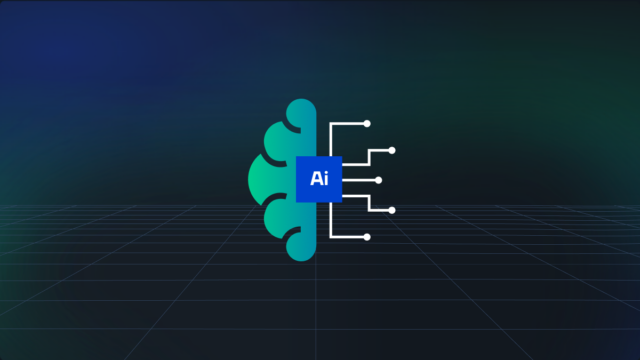One page websites: should these be used?

We typically don’t recommend one page websites because they come with some specific drawbacks that can be challenging for your business, both in the short and long term.
That isn’t to say they don’t have their place. There are some very specific cases where we do recommend a one page website as the most effective solution to a problem.
Before we explore their pluses and minuses, let’s first define what we mean by one page websites.
What is a one page website?
It’s a website composed of a single page. Pretty self explanatory.
All the content on a one page website is fully loaded in the initial page. There aren’t multiple page designs like on a traditional, deeper website. Instead, users scroll down the page and through the content, similar to how they might scroll through a social media feed.
If there are navigation links on a one page website they will typically take you to a different section on the same page, rather than another distinct page.
One page websites have become something of a trend in web development services in recent years As an example, there are lots of creative freelancers that use them for online portfolios.
But, just because they’re a trend doesn’t mean that they’re always the right choice.
Are one page websites bad for SEO?
Your search optimization ranking (SEO) ranking refers to how well your website ranks on search engines.
Most users won’t click past the second page of their search results. So, if you want your website to be visible it’s important to think about optimizing SEO.
Compared to a traditional multi-page website, one page websites aren’t as effective for SEO.
There are three key reasons why:
1. There’s an inability to target a broad selection of keywords
Keywords are the words and phrases users search on Google. What do you search for when you need a solution from Google? Often it’s short, punchy, and just a few words. Those are the phrases and words to target for SEO.
One page website design generally focuses on a single concept or theme. Because of this these sites will have a more limited selection of targeted keywords than will a deeper website.
You can try and address this by cramming more keywords into a single page design but that can sabotage user experience (more on that topic below).
The simple reality is that, in almost all cases, a single page website will not have the same SEO potential as a multi-page site that has distinct, targeted sections and pages.
2. It’s harder to build quality links
SEO favours sites with high quality internal and external links.
What’s the difference between the two?
Internal links connect the pages on your website to one another. They’re important because the number of internal links pointing to a page signals that page’s importance to search engines. Meaning, it will show up higher on search engines.
On one page websites, you can only link from one point of the single page to another. You can’t link to other pages because they don’t exist. That negatively impacts their SEO performance.
External links are those that go from one website to another. Google essentially views an external link as a “third-party vote” for your website. That gives the linked website more validity, and helps improve SEO performance.
It’s difficult to manipulate or skew this statistic because Google checks the trustworthiness of the websites giving the links. Google would know (and penalize you) if you created fake websites to give your main website external links.
In practice, external links are relevant because a website will often link to another website that has a more in depth explanation of a point they are trying to make.
Pages on a multi-page website are often more specialized than those on one page websites. This means that it’s more likely that a third-party website will link to the more detailed page of a multi-page website. So, one page websites have less SEO potential than their multi-page counterparts.

3. You only have one set of metadata
Metadata encompasses a range of information, but the most important piece for SEO is the title tag. It’s the literal title of a website that shows up on search engine results pages (SERPs). It’s the title that users will click on, so it needs to stand out.
One page website development only gives you one set of metadata. That creates only a single title tag and description. You only have one chance to create a title that will show up on search engine results pages.
Because of that restriction, the keywords you’re targeting will likely need to be quite broad. And, the broader the keywords, the more competitive they are, making it harder for your title tag to stand out amongst others.
A multi-page website will have metadata for multiple pages. This means there will be multiple titles that can show up on SERPs. This means users have a greater chance to find them. That includes users who search for more specific and specialized terms.
Depending on your business, you might rely heavily on Google and a high SEO rank to find new customers. In that case a multi-page website that incorporates a variety of keywords, links, and metadata is a stronger choice.
And in the long term, even if Google isn’t your primary way to attract business, it’s still smart to build an SEO-optimized website. That means multiple pages.
How do one page websites affect user experiences?
There are three qualities that help ensure one page websites deliver the best user experience:
Succinctness, focus, and clarity.
Too much content can become disorganized at best and confusing at worst. It just isn’t user friendly. Great one page websites are most often simple one page websites.
Let’s look at an example of where a one page website may negatively affect user experience.
It would be challenging to lay out your company positioning, differentiators, service offerings, team members, philosophy, case studies and customer testimonials on a single page. And if you’re trying to speak to multiple audiences with different needs? It’s almost impossible to do it effectively on a one page website.
There’s a good chance all of that content would be better served on a deeper website that has a focused section for each content area or audience. Or both.
However, if you are looking to achieve a singular goal with focused content by targeting a specific audience, a one page website could potentially deliver that experience.
When is a one page website the right choice?
Let’s look at two examples where we would recommend a one page website as the right choice to meet your business goals while still delivering a strong user experience.
1. Dedicated landing pages
If you create a dedicated one page website as a landing page for a paid ad presenting a particular service or promotion, your users will get only the exact content you intend, with nothing else to distract them.
A paid ad is an ad that shows up at the top of Google’s search engine results. However, you pay for that premium search engine ranking each time someone clicks on your ad. So, you obviously want to convert (make a sale) as often as possible when someone clicks on the ad – in order to maximize the value of your spending.
For example, imagine you’re selling sporting goods in an online store. You have all kinds of equipment from all kinds of sports in your inventory. You decide to create a paid ad to let customers know that all your golf clubs are marked down. The ad’s reach will increase traffic from potential customers, which will, in turn, increase your chance of making sales.
This is where a dedicated landing page focused solely on that particular promotion can be effective. After all, customers don’t need to see your entire inventory when they click on the ad. They just need the content they’ve indicated they want to see – the golf clubs. Showing them only what they’ve asked for makes it easier and faster for them to make a purchase.

2. Limited budget
Honestly, it’s difficult to create an effective multi-page website with a limited budget.
You don’t want to compromise your brand or the back end of your website. That would likely lead to an earlier-than-desired redesign or rebuild, along with some user confusion and frustration along the way.
So if you’re working with a limited budget, it could be better for your brand to create a strong single page site that is technically sound and expresses your brand clearly. You can always add new pages to the site over time.
Conclusion
If you need an extremely focused website to hit a particular goal, or are working on a limited budget, a one page website could be the right choice.
However, for a website that will serve your brand and business for the long term, we recommend multi-page websites. There’s more room for your content, more ways to structure and refine a user experience, greater SEO potential and you can appeal to more audiences.
If you’re looking for an effective one page website to meet a particular business need, or unsure about what type of website would best serve your business, we’re here to guide you. Let’s talk.



